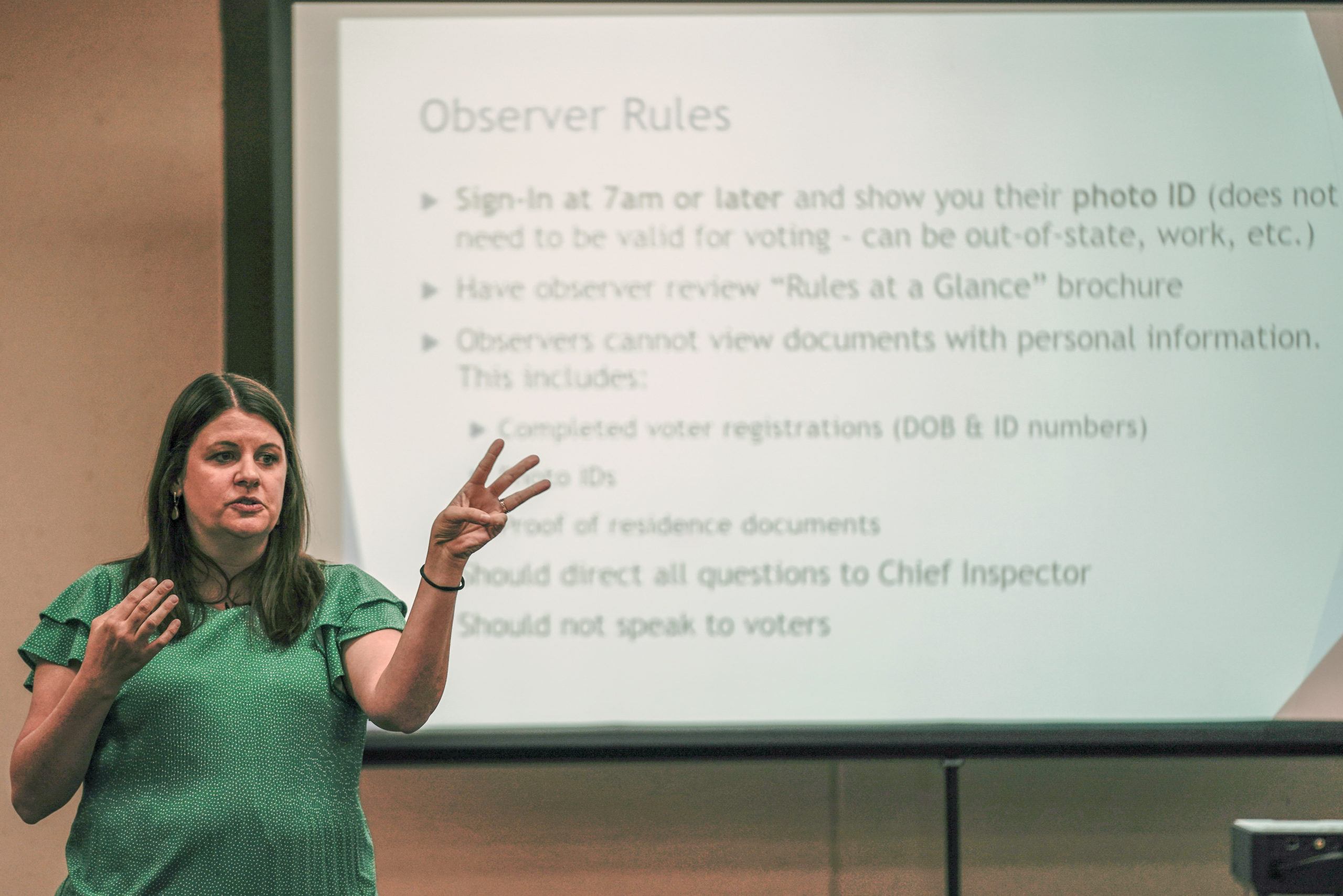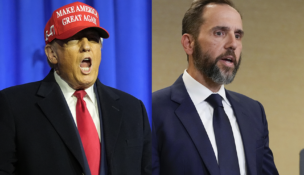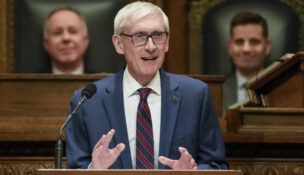Recount begins in Supreme Court election (SLIDESHOW)
By: Associated Press//April 27, 2011//
By TODD RICHMOND
Associated Press
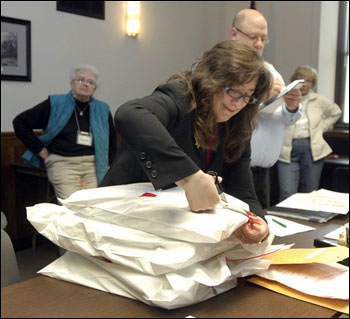
MADISON, Wis. (AP) — The first statewide recount in more than 20 years began Wednesday with county workers scrutinizing ballots in a state Supreme Court race that many saw as a referendum on Republican Gov. Scott Walker and his polarizing collective bargaining law.
Challenger JoAnne Kloppenburg requested a recount after county tallies showed Justice David Prosser won their race by 7,316 votes, less than one-half of 1 percent of the 1.5 million votes cast. County clerks, canvassers and tabulators started poring over ballots at 9 a.m. as representatives from both campaigns looked on, searching for irregularities to challenge.
The recount promises to be long and messy. The last statewide recount was in 1989 in a referendum on a constitutional amendment dealing with property tax relief. The only other one was during the 1858 governor’s race.
The Government Accountability Board, the state agency that regulates elections, has been conferring with clerks for days on their procedures. The board posted a number of clerks’ questions online, covering such things as media access to recount rooms (reporters can move around the room for a limited period as long as they’re not disruptive), whether cell phones are allowed (yes, if they’re kept on vibrate) and whether reporters can photograph ballots (yes, during their limited roaming period).
The board itself ran into glitches when it posted a spreadsheet online Wednesday evening with results from some of the first precincts to complete their recounts. The board’s director, Kevin Kennedy, said his staff would work to refine the application.
“To say it nicely, this first day is going to be a bit chaotic,” Dane County Clerk Karen Peters told observers Wednesday morning. “And I apologize, but this is a first time event for everyone and as much as you think you can be organized, we’re going to find that things have to change a little bit.”
Peters tried to maintain a tight operation. Observers were told not to bring in coats or black or blue pens. County staff had people sign in and out of the room.
Prosser’s lead observer, Christ Troupis, said the campaign was concerned with whether military ballots would be properly counted. Dianne Greely, Kloppenburg’s lead observer, said they were simply looking to ensure the count was accurate.
Dane County residents cast about 182,000 votes in the April 5 election, and Peters said she aimed to get through 15,000 votes a day. At that pace, the recount would last nearly two weeks. She promised tabulators would work late nights and weekends.
Kloppenburg, an unknown state attorney, was initially considered a long shot in the race against Prosser, a 12-year justice and a powerful former Republican legislator. But her campaign surged in the final weeks before the election as her supporters worked to tie Prosser to Walker and the governor’s divisive union rights law.
The law requires almost all public workers to contribute more to their pensions and health care. It also strips them of their right to negotiate any work conditions except for wages. Tens of thousands of protesters demonstrated against the plan around the clock at the state Capitol for weeks in February and March.
The law is now tied up in court, and Democrats hoped a Kloppenburg win would shift the state Supreme Court to the left and set up the justices to strike it down.
She appeared at first to have pulled off an upset. Initial returns showed Kloppenburg defeated Prosser by 200 votes.
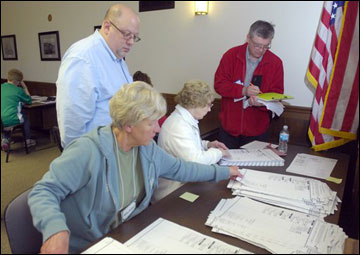
Two days later, though, Waukesha County Clerk Kathy Nickolaus, who worked for Prosser when he was a member of the Legislature, announced she had failed to report 14,000 votes from the Republican-leaning city of Brookfield. The new votes flipped the election for Prosser.
Kloppenburg requested the recount last week. Under state law, she is entitled to one at local governments’ expense if the margin between the candidates is less than one-half of 1 percent.
Prosser’s campaign has pressured Kloppenburg to give up, saying there’s no chance of finding 7,000-plus votes for her side and the recount would be costly for taxpayers.
About two dozen county clerks who answered an Associated Press survey estimated their total combined costs would run about $577,000. The total cost statewide will almost certainly be more; less than a third of the state’s counties provided cost estimates to the AP.
Tabulators in Waukesha County started their recount of about 125,000 votes by leafing through stacks of ballots and comparing the number of those to polling records. Observers from both campaigns looked over their shoulders. A trio of sheriff’s deputies watched in silence.
In Milwaukee County, workers must re-tally about 228,000 votes. The effort began slowly as dozens of workers pulled stacks of ballots from plastic bags and set them on tables for others to count and sort.
“The whole concept of a recount is new to us,” said Neil Albrecht, deputy director for the City of Milwaukee Election Commission.
Kloppenburg hasn’t directly answered questions about whether she thinks she can pull out a victory, instead saying she wants to add transparency to the election. She has said her campaign detected “widespread anomalies” in the election, including Nickolaus’ delayed announcement and reports of under voting, long lines at polling places and photocopied ballots.
The Government Accountability Board hopes to complete the recount by May 9, but may ask a judge for an extension if counties can’t meet the deadline.
Associated Press writers Jason Smathers in Madison and Dinesh Ramde in Franklin and Waukesha contributed to this report.
Legal News
- Money isn’t enough to smooth the path for Republican candidates hoping to retake the Senate
- Milwaukee election leader ousted 6 months before election in presidential swing state
- Former President Trump calls for arrest of special prosecutor Jack Smith
- Wisconsin judge dismisses lawsuit challenging state’s new wolf management plan
- Wisconsin Supreme Court issues opinion on Milwaukee Police officer fired over Facebook posts
- Gov. Evers Seeks applicants for Menominee County Register of Deeds
- Donald Trump calls Joe Biden weak on antisemitism, ignoring his own rhetoric
- Gov. Evers again calls Republican lawmakers into special meeting
- CIA is obstructing justice and witness tampering in Havana Syndrome cover up, attorney says
- Wisconsin Supreme Court will decide whether mobile voting sites are legal
- WisDOT honors Wisconsin State Patrol staff for going above and beyond to keep communities safe
- Milwaukee Men sentenced to Federal Prison for pharmacy robberies and firearms offenses
WLJ People
- Power 30 Personal Injury Attorneys – Russell Nicolet
- Power 30 Personal Injury Attorneys – Benjamin Nicolet
- Power 30 Personal Injury Attorneys – Dustin T. Woehl
- Power 30 Personal Injury Attorneys – Katherine Metzger
- Power 30 Personal Injury Attorneys – Joseph Ryan
- Power 30 Personal Injury Attorneys – James M. Ryan
- Power 30 Personal Injury Attorneys – Dana Wachs
- Power 30 Personal Injury Attorneys – Mark L. Thomsen
- Power 30 Personal Injury Attorneys – Matthew Lein
- Power 30 Personal Injury Attorneys – Jeffrey A. Pitman
- Power 30 Personal Injury Attorneys – William Pemberton
- Power 30 Personal Injury Attorneys – Howard S. Sicula





